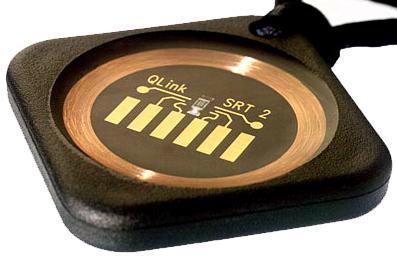A reader noticed my lengthy and profitable career with ReviewMe (i.e. this one review), and suggested I check out PayPerPost instead.
Both are services that allow Web writers to sell their services to people who want someone to write about something. One big difference, though, is that ReviewMe take half of everything you're paid, while PayPerPost take a much smaller cut.
So that was interesting.
As soon as I looked at PayPerPost, though, I saw the other big difference. PayPerPost lets people list "opportunities" that have the condition that whatever you write has to be complimentary.
ReviewMe specifically forbid that requirement. And that is, of course, their downfall.
It turns out that the kinds of companies that have to pay for blog attention are, by and large, not deserving of positive attention. And so they vastly prefer more... ethically flexible... services like PayPerPost, over ReviewMe.
PayPerPost claim that "open-tone opps" (i.e. "opportunities" to write either positively or negatively about an advertiser) are "the majority", but this is obviously some strange usage of the word "majority" that I wasn't previously aware of.
PayPerPost is, in brief, full of hopeful corporate johns trolling for a blog-whore to write something complimentary. There's really almost nothing there but solicitations to journalistic prostitution, as far as I can see.
They pay lip service to journalistic integrity, saying that they "will not accept Opportunities that require our bloggers to be dishonest in any way". But the "Opportunity" list in reality is a long litany of companies that want bloggers to "promote" or "create buzz" or write in a "positive tone only" about their Web sites or products.
And oh, the products on offer.
Beachfront real estate in northwestern Mexico - about which I, here in Australia, am welcome to hold forth at great length, for pay, as long as I keep it complimentary!
When I'm finished with that, someone wants me to "Review our new free Thai dating site", a job which I'm sure will take no more than five minutes. Thailand's practically in my back yard! Why not?
Oh, and I mustn't forget the doctors offering "labia reduction surgery", "anal bleaching", and every other kind of genital-related plastic surgery that's ever made you say "eew". Positive tone only, guys!
And let's not forget all the representatives of the fine and upstanding payday loan industry, who're eager to get positive coverage for their super-competitive 500% APRs!
Needless to say, all this made me eager beyond words to sell myself out and become part of the burgeoning online payola scene.
Regrettably, though, PayPerPost rejected Dan's Data as a suitable place for their priceless Opportunities.
Fortunately, the PayPerPost rejecting-dude told me what the problem was:
While the content of your blog is fine, I would like to give some advice on your format. When advertisers create opportunities, they are expecting that the post in it's entirety will be shown on the blog. If the posts have the "...Read full post" or just one line with a link to the post, that is a major deterrence for the advertiser. If possible, please format your blog to show the full posts and re-submit."
No problem, man - I'll get right on that!
The fact that the average length of an article on Dan's Data is more than 3500 words, with an average page weight of, I dunno, 200 kilobytes at least, would in no way impede putting the last five articles on the front page in full!
Hell, let's make it the last twenty articles! I could have the biggest page on the Web! Take that, Gene!
The nature of the rejection, of course, is something of a giveaway. PayPerPost don't want real writers to apply. Hell, they don't even require your site to have an archive; all they ask is that your paid-for posts remain "active" for 30 days. Then I suppose you can delete them and swear up and down that you never said a word about how that Psychic Development Course was the best thing ever.
I'm not making that up, by the way. "Promote Psychic Development Course" is one of the current Opportunities, along with another bunch of courses and tutorials from the same people, all of which I'll go out on a limb and say are just as bogus. And the quacks and shysters just keep on coming.
PayPerPost also say that "Nobody wants to hear how much you got paid for your sponsored post."
Actually, y'know, I think I really rather would like to know whether someone's getting a five buck tip or a $500 windfall in return for his post about how he sincerely believes some dudes have found the cure for dyslexia.
Be aware that people with a Google PageRank as high as mine can make three hundred US dollars, bang, just by answering the call to "Introduce free Spyware Terminator to your readers!"
Oh, and there are lots of YouTube videos about PayPerPost, too. Because PayPerPost listed their own "Opportunity" a while ago, asking for video testimonials. Awesome!
All of this is pretty much the outside scoop in the blogging community, where PayPerPost has been making friends since the middle of last year. But since I don't hang out with the dudes whose benchmark is wringing a dollar out of every one of their RSS subscribers every month, and since I also missed the Slashdot story, it was all new to me.
Fortunately, it looks as if the network is (to coin a phrase) routing around this crap. Payola isn't new, and it's not going away, but it's not making any great impact I can see, either. There's a pretty sharp line between the sell-sell-sell scumbags with exactly one value who "monetize" their readers and the people like me who have, I dunno, maybe 2500 RSS subscribers specifically because I don't keep trying to screw cash out of you all.
I'm sure there are readers out there who can't tell the difference, but I don't think blog payola's going to make those readers any worse off than they already are. Everyone else ought to be able to detect the subtle signs of PayPerPost-ish bulldust.
All this isn't to say I won't put text ads or something in the Dan's Data RSS feed (update: I've done it now!) at some point. The damn thing's getting more than six hundred thousand pageloads a month all by itself. If y'all want to download it that many freakin' times, I do not feel it's unfair to ask you to occasionally punch a monkey or something in return.
Unfortunately, I haven't yet found a reputable feed ad agency - or a disreputable one, for that matter - that can handle my incredibly obscure "text file I upload via FTP" RSS creation technology. They all want to hook into blogging systems that I don't use for good old flat-file Dan's Data.
So my feed remains pristine. Dammit.




